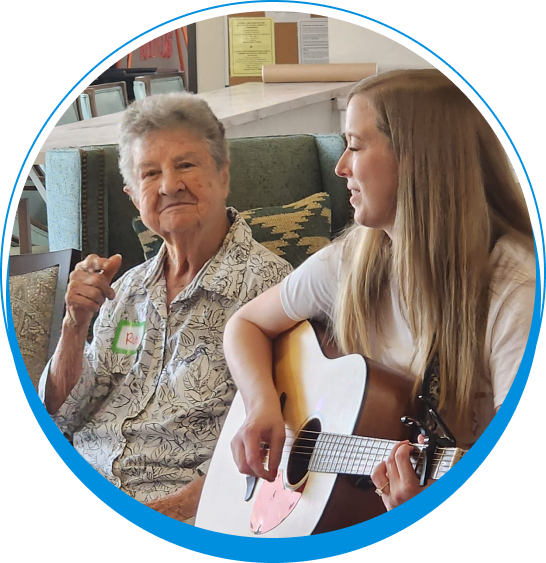By Hollie Glover, MA, LPC, NCC
With all the time, attention and sacrifice that go into caring for a loved one with dementia, it’s natural for caregiving to become a part of your identity. But what happens when your loved one passes away and the caregiving ends? Here are some ways you can start to overcome loss and discover renewed purpose in life.
Grapple With Grief
Although it’s natural for caregivers to feel grief throughout the progression of their loved one’s disease, grief often intensifies once the person they were caring for passes away. It’s important to first acknowledge those feelings and understand that the grieving process is different for everyone – there are no specific stages or timelines to follow. To get through this difficult phase, you must first embrace it.
- Don’t run from grief. It may be the hardest work you will ever do, but the goal is not to run from grief but to face it. Understand that your loved one will be part of you forever and that you’ll never stop grieving their loss; however, you don’t have to let grief overcome your life. You’re moving forward – not moving on.
- Adapt to a new life. Building a bridge between the life you had with your loved one and the life you have now without them. Learn to integrate their absence into your life and develop a new normal.
- Come to terms with beliefs you may have held about loss. For example, you may have believed that a good person shouldn’t have a painful disease, but after watching your loved one suffer, you realize that even good people experience pain and discomfort.
Celebrate Life
Throughout your journey, you can find various ways to celebrate the life of your loved one and continue your relationship with them in a new way.
- Reframe the funeral. Funeral rituals may remind us of the finality of the death, but you can reframe the funeral as a celebration of life, which can help make your loved one’s passing easier and the ceremony more of a positive, uplifting experience.
- Continue to tell stories of your loved one. It becomes our way of maintaining our relationship with them. It reminds us who they truly were, not merely what they’ve done. Once we naturally start to release them, the grief will fade. But what will remain are our memories and their enduring legacy.
- Create new traditions. Each of their life milestones (birthdays, anniversaries, holidays, etc.) will bring you a chance to start a new tradition, whether it’s by taking flowers to the cemetery, eating their favorite dessert or volunteering for their favorite charity.
Self-Reflect and Seek Support
When you devote so much of your attention to the needs of your loved one as a caregiver, it’s easy to forget who you are and neglect your own desires, passions and aspirations. That’s why it’s so important to take an introspective look at who were before you became a caregiver and who you want to be after – whether through therapy, self-reflection or other means.
- Ask yourself key questions and work through them in a journal or with a trusted friend, family member or professional. Who am I now that my job as caregiver has finished? What are the main challenges I will now face to become the person I want to be? How have my plans for the future changed? What would I like to do in the following year? These questions can help you figure out where you fit in and set some short- and long-term goals.
- Seek emotional support. What or who energizes you and keeps you feeling encouraged and hopeful? From spiritual practices to reconnecting with friends and relatives, from staying active in support groups (or even starting your own) to pursuing your personal passions, staying connected and active will help you move forward.
As leading experts in dementia care, we understand the unique challenges caregivers and families face. That’s why we offer resources, such as our blog covering caregiving-related topics; educational programs and materials, including videos, podcasts and classes; and counselor-led support groups to help you navigate the various stages of dementia and provide the care your loved one needs. To connect with our dementia care community, subscribe to our e-newsletter.


